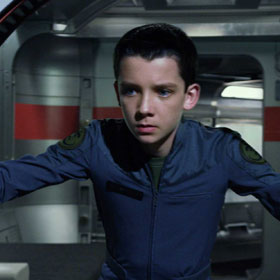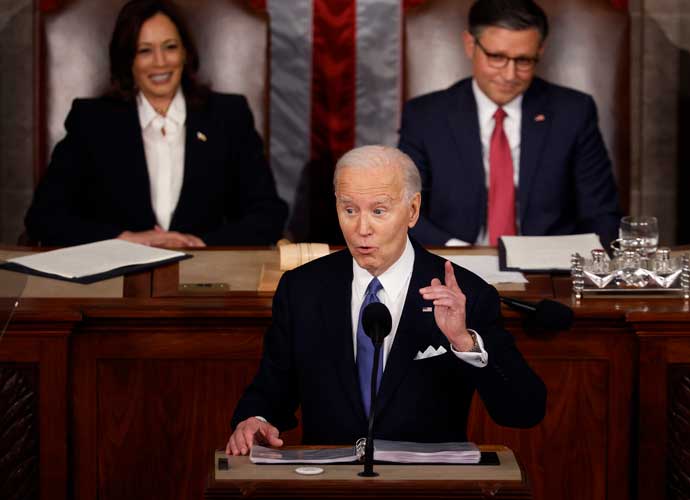'Ender's Game' Review: A Satisfying Film Adaptation Of A Classic Science Fiction Novel

4/5
Ender's Game is the newest futuristic war film adapted from a beloved science fiction novel to explode onto the Hollywood scene.
There is a fair amount of trepidation involved for any moviegoer who also happens to hold an equally avid love for literature, especially when the word adaptation immediately follows one of their most cherished novels. Orson Scott Card’s novel Ender’s Game was paramount to my existence as a teenager. It was the first piece of literature to propel my mind towards the beauty and depth that can be achieved through science fiction. So, I held the reigns back a bit with my excitement regarding the most recent film adaptation, not wanting another stab in the heart like Baz Luhrmann's The Great Gatsby.
For those unfamiliar with the sci-fi saga of Card’s Ender’s Game (which includes more than 15 sequels and branches), the premise revolves around a young boy named Ender Wiggin in a world which years earlier faced a serious threat from an alien life force. Having succeeded in defeating the creatures then, the world army must now prepare for a second retaliation attack of possibly even greater force. After much deliberation, the best military minds in the world have concluded that children, in their innocent and intuitive state, are the most able bodied to defeat this threat. The original short story by Card was written in 1977 and then adapted into a full novel in 1985, towards the end of the Cold War, so the novel addresses themes regarding both military and governmental tactics as well as the role of the individual and the dangers that can come with following orders blindly.
Quite surprisingly, the movie, written and directed by Gavin Hood (X-Men Origins: Wolverine), does a fair amount of justice to the world that Card creates in his novel. The set design and costumes were remarkably thought out, reflecting a near exact representation of the world created in the book. The zero gravity training rooms, which the cadets use for practice, was exceptionally well visualized, and the training sessions at Command School helped create an intensely realized world. The mind games that Ender plays in his spare time also allows the film to showcase some incredibly intriguing and beautiful graphics. Besides minor plot changes, such as Ender being 12 years old as opposed to six when he is recruited, and the lack of depth and the omission of the storyline of Ender’s siblings, the film serves its role as the book’s companion piece well.
Asa Butterfield, who also starred in 2011’s Hugo, plays Ender in the film and he displays an incredible lead performance, which is tantamount in making the film work to the degree that it does. Harrison Ford’s performance as Colonel Graff, the embodiment of the government, is solid, and Ben Kingsley, Hailee Steinfeld, Viola Davis, and Abigail Breslin all carry their roles well enough. Though there did seem to be some difficulty with fleshing out character. Many of the roles served mainly as a means to showcase Butterfield rather than offering up real, three-dimensional characters.
The biggest drawback of the film is the same drawback you will find in every literary adaptation on film: there are inner motivations, thoughts and turmoil that the main character faces in the books, which are omitted from the screen version. In the end, this leaves any viewer not familiar with the written work lacking crucial aspects of the experience and lessons of the original. And, although these vacancies are minor to propelling the storyline as a whole, it leaves a void in terms of the depth of the moral struggle of the story – which is, well, the best part of Ender’s Game. The film could have taken another 30 minutes to an hour tacked on to make it fleshed out in greater detail to stay completely true to the vision Card had in mind. But with studios trying to market to a specific crowd, after the idea of a 14-year-old sitting through a two and half hour movie most likely seemed preposterous. Overall, however, a story that could have been left to flounder amidst typically dumb downed, cheesy lines and plot holes was done justice, leaving a story that both fans of the book and new audiences can appreciate.
Now, as for potential sequels, I, for one, have a throbbing desire to watch this series take life on the big screen. For as much as I adore Ender’s Game, its sequel, Speaker for the Dead, carries a whole new weight of philosophy on government intervention and what it means to forge connections and tear them apart. Albeit, it’s a much different story than Ender’s Game and does not reflect the young adult (YA) audience that Hollywood seemed to have in mind when creating this film. If fleshed out correctly though, if obsessed over in the same way Lord of the Rings was obsessed over, an Ender’s Game franchise could stand as something enduring.
Get Uinterview's FREE iPhone App For Daily News Updates here.
Get the FREE Uinterview iPad app here and watch our videos anywhere.
RELATED ARTICLES
Get the most-revealing celebrity conversations with the uInterview podcast!







Leave a comment